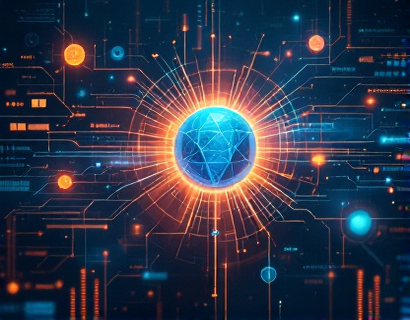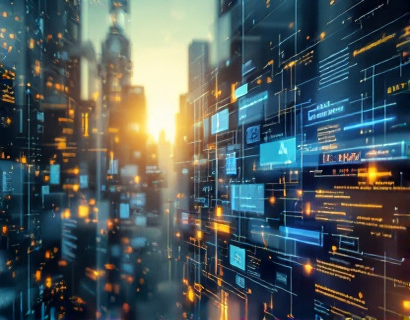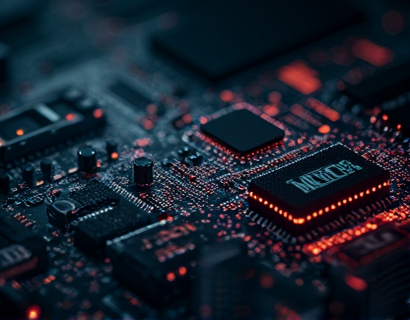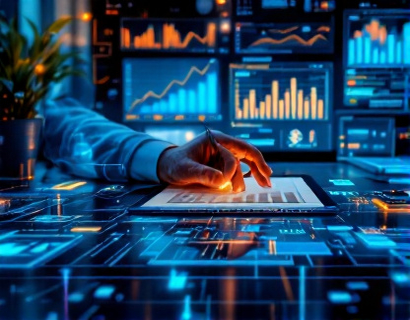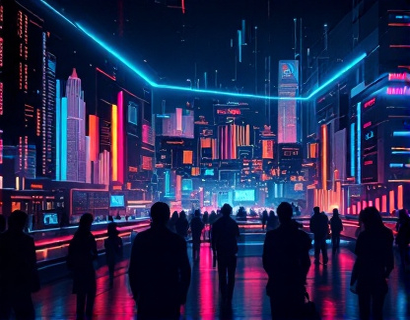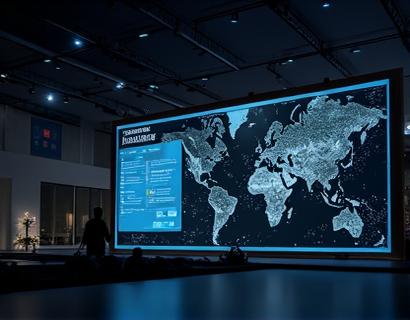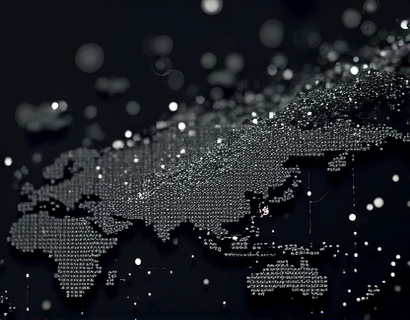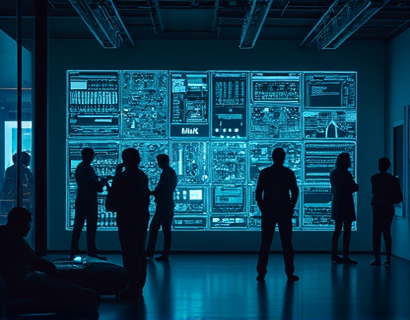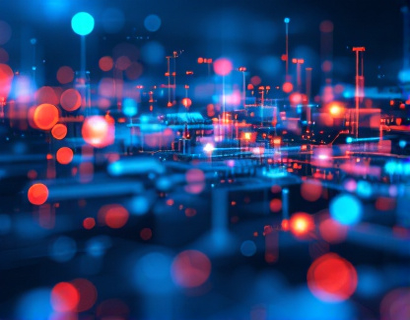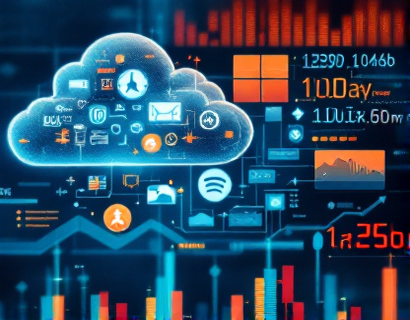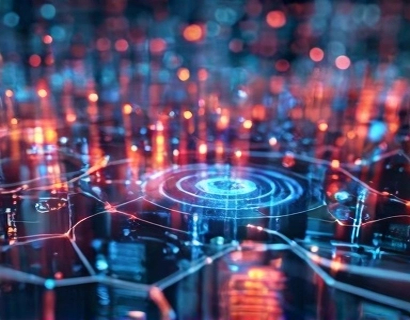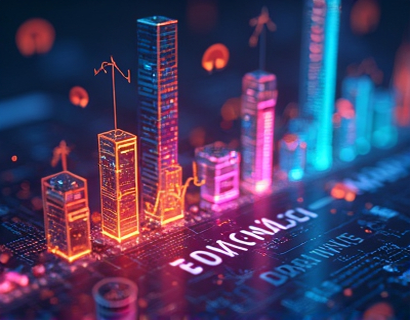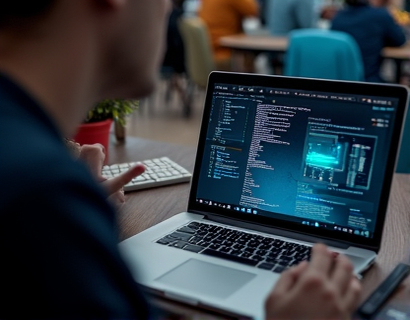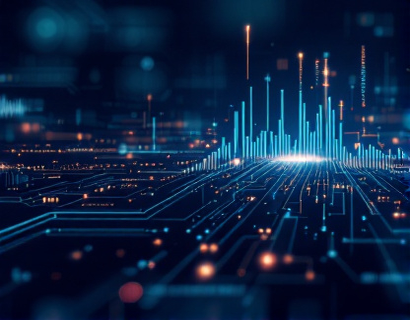Decentralized Productivity: Harnessing AI and Crypto for Enhanced App Ecosystems
The integration of artificial intelligence (AI) and cryptocurrency is paving the way for a new era of decentralized productivity tools and app ecosystems. This transformative convergence is redefining how we approach tasks, collaboration, and efficiency in the digital realm. By leveraging the strengths of both technologies, developers are creating innovative solutions that not only streamline workflows but also enhance user experience and security. This article delves into the intricate ways AI and crypto are merging to revolutionize the app landscape, offering insights for tech enthusiasts, productivity professionals, and early adopters of digital solutions.
The traditional centralized model of app ecosystems has several limitations, including single points of failure, data privacy concerns, and dependency on central authorities for updates and maintenance. Decentralized app ecosystems, powered by blockchain technology, address these issues by distributing control and data across a network of nodes. This decentralization ensures that no single entity has control over the entire system, thereby enhancing security and reducing the risk of censorship or manipulation.
AI, with its ability to process vast amounts of data and learn from patterns, brings a level of intelligence and adaptability to these decentralized systems. When combined, AI and decentralization can create apps that are not only more efficient and user-friendly but also capable of self-improvement and autonomous decision-making. This synergy is particularly beneficial in productivity tools, where the goal is to automate repetitive tasks, provide intelligent recommendations, and facilitate seamless collaboration.
One of the key benefits of decentralized productivity apps is enhanced data ownership and control. In a centralized system, user data is often stored on servers controlled by the app provider, raising concerns about privacy and data security. Decentralized apps, however, allow users to maintain ownership of their data, storing it on their devices or personal nodes within the network. This not only protects user privacy but also gives individuals more control over how their data is used and shared.
AI plays a crucial role in managing and optimizing this decentralized data environment. Machine learning algorithms can analyze user behavior and preferences to offer personalized experiences without compromising privacy. For instance, an AI-driven productivity app can learn an user's work patterns and suggest optimal times for tasks, automate routine activities, and even predict potential bottlenecks in project timelines. These intelligent suggestions and automations significantly enhance productivity and reduce the cognitive load on users.
Another significant advantage of decentralized app ecosystems is their resilience and scalability. Traditional centralized systems can become overwhelmed as the number of users grows, leading to slower performance and increased downtime. Decentralized networks, on the other hand, distribute the load across multiple nodes, ensuring that the system remains robust and responsive even under heavy usage. This scalability is essential for productivity apps that need to handle large volumes of data and a growing user base without sacrificing performance.
Smart contracts, a core feature of blockchain technology, further enhance the functionality of decentralized apps. These self-executing contracts with the terms directly written into code can automate complex workflows and ensure trust and transparency in transactions. In a productivity context, smart contracts can be used to manage project workflows, automate payments, and enforce agreements between collaborators. This automation reduces the need for intermediaries, speeds up processes, and minimizes the risk of human error.
AI-driven chatbots and virtual assistants integrated into decentralized apps can provide real-time support and guidance to users. These AI-powered assistants can handle a wide range of tasks, from answering frequently asked questions to facilitating complex negotiations. By offloading routine and repetitive tasks to AI, users can focus on higher-value activities that require human creativity and critical thinking. This synergy between AI and decentralization not only boosts efficiency but also enhances the overall user experience.
The development of decentralized app ecosystems also fosters innovation and community-driven improvements. Unlike centralized platforms where updates and new features are controlled by a single entity, decentralized apps allow developers and users to contribute to the ecosystem. This open-source approach encourages collaboration, rapid prototyping, and continuous improvement. AI can further enhance this process by analyzing user feedback and usage patterns to identify areas for enhancement and innovation.
Security is another critical aspect where the combination of AI and decentralization shines. Decentralized networks are inherently more secure due to their distributed nature, but AI can add an extra layer of protection. Machine learning algorithms can detect and respond to anomalous activities in real-time, identifying potential security threats before they can cause harm. This proactive approach to security is vital for maintaining user trust and ensuring the integrity of the app ecosystem.
To illustrate the practical applications of this technology, consider a decentralized project management tool. Such an app could use AI to analyze team performance, suggest optimal task assignments based on individual strengths and availability, and automate the tracking of project milestones. All data and workflows would be stored securely on a blockchain, ensuring transparency and immutability. Smart contracts could handle payment distributions based on completed tasks, eliminating the need for manual invoicing and reducing the risk of disputes.
Another example is a decentralized content creation and collaboration platform. AI can assist in content generation, editing, and optimization, while blockchain ensures that creators retain ownership of their work and are fairly compensated for their contributions. Users can collaborate in real-time, with AI tools providing suggestions and streamlining the workflow. The decentralized nature of the platform ensures that content is not censored and remains accessible to authorized users regardless of geographical location or political constraints.
The future of decentralized productivity apps is promising, with ongoing advancements in both AI and blockchain technology. As these technologies mature, we can expect even more sophisticated and user-friendly tools that further blur the lines between work and personal life. The key will be to design apps that not only enhance productivity but also respect user privacy and autonomy.
For tech enthusiasts and professionals looking to explore these innovative solutions, the landscape is rapidly evolving. Staying informed about the latest developments in AI and blockchain can provide a competitive edge in leveraging these technologies for personal and professional growth. Whether you are a developer, a business owner, or an individual seeking to streamline your workflow, the intersection of AI and decentralization offers a wealth of opportunities to redefine productivity and efficiency.
In conclusion, the merging of AI and cryptocurrency is not just a technological trend but a fundamental shift in how we approach digital productivity. By harnessing the power of decentralized app ecosystems, we can create a more secure, efficient, and user-centric digital environment. As we continue to explore and innovate in this space, the potential for transformative change is immense, promising a future where technology truly empowers individuals and enhances our collective capabilities.





